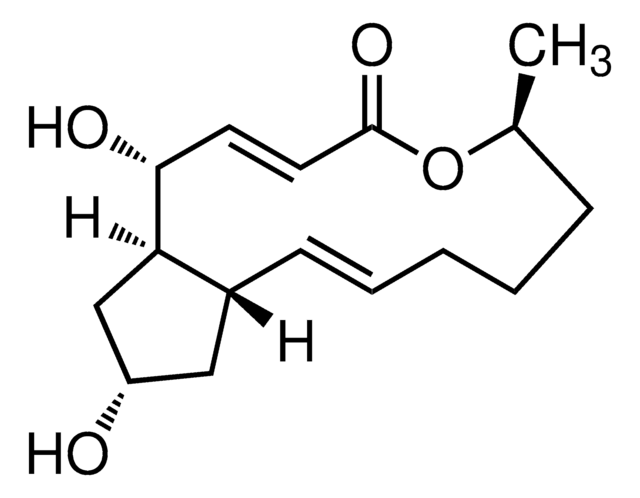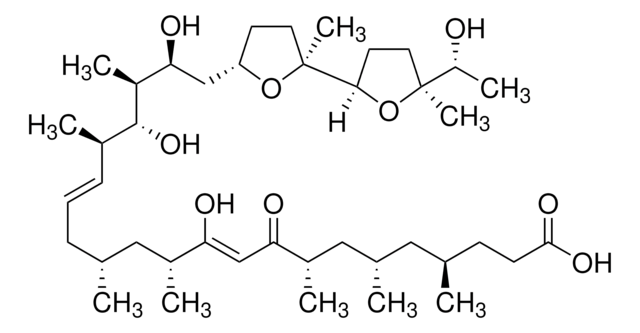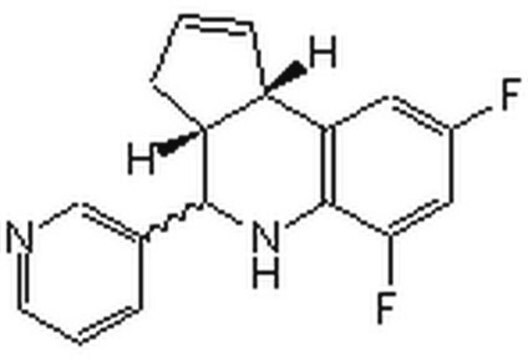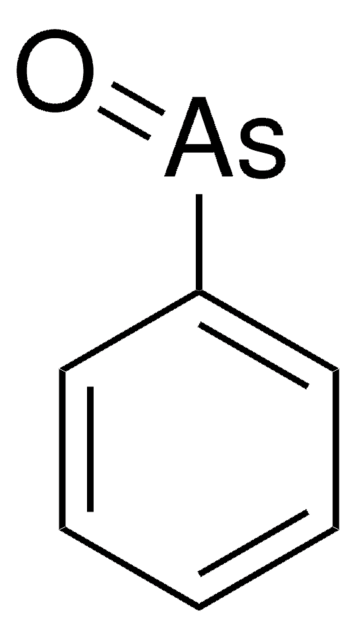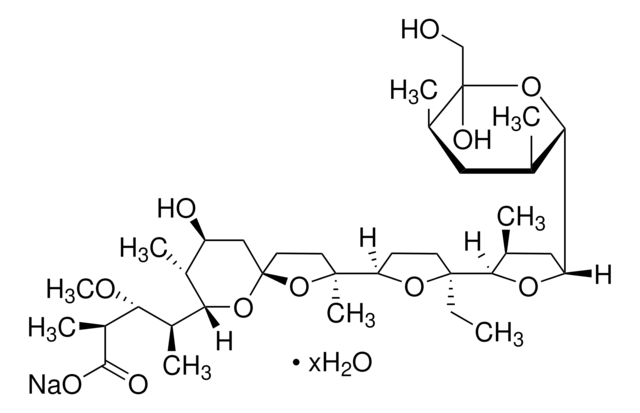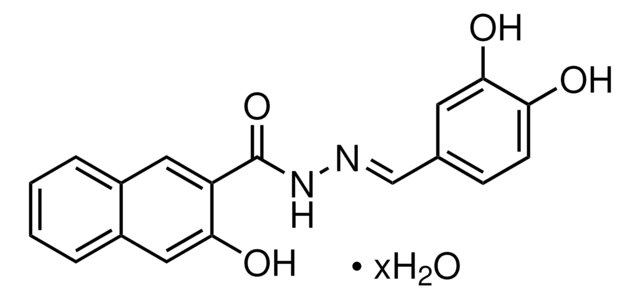B6542
Brefeldin A
≥99% (HPLC and TLC), BioXtra, for molecular biology
Synonym(s):
γ,4-Dihydroxy-2-(6-hydroxy-1-heptenyl)-4-cyclopentanecrotonic acid λ-lactone, Ascotoxin, BFA, Cyanein, Decumbin
About This Item
Recommended Products
biological source
Penicillium brefeldianum
Quality Level
grade
for molecular biology
product line
BioXtra
Assay
≥99% (HPLC and TLC)
form
powder
mol wt
280.36
solubility
DMSO: 10 mg/mL (Store stock solutions at -20 °C)
antibiotic activity spectrum
neoplastics
Mode of action
protein synthesis | interferes
storage temp.
2-8°C
SMILES string
C[C@H]1CCC\C=C\[C@@H]2C[C@H](O)C[C@H]2[C@H](O)\C=C\C(=O)O1
InChI
1S/C16H24O4/c1-11-5-3-2-4-6-12-9-13(17)10-14(12)15(18)7-8-16(19)20-11/h4,6-8,11-15,17-18H,2-3,5,9-10H2,1H3/b6-4+,8-7+/t11-,12+,13-,14+,15+/m0/s1
InChI key
KQNZDYYTLMIZCT-KQPMLPITSA-N
Looking for similar products? Visit Product Comparison Guide
General description
Application
Biochem/physiol Actions
Principle
Not finding the right product?
Try our Product Selector Tool.
Signal Word
Danger
Hazard Statements
Precautionary Statements
Hazard Classifications
Acute Tox. 3 Oral
Storage Class Code
6.1C - Combustible acute toxic Cat.3 / toxic compounds or compounds which causing chronic effects
WGK
WGK 3
Flash Point(F)
Not applicable
Flash Point(C)
Not applicable
Personal Protective Equipment
Certificates of Analysis (COA)
Search for Certificates of Analysis (COA) by entering the products Lot/Batch Number. Lot and Batch Numbers can be found on a product’s label following the words ‘Lot’ or ‘Batch’.
Already Own This Product?
Find documentation for the products that you have recently purchased in the Document Library.
Customers Also Viewed
Our team of scientists has experience in all areas of research including Life Science, Material Science, Chemical Synthesis, Chromatography, Analytical and many others.
Contact Technical Service
